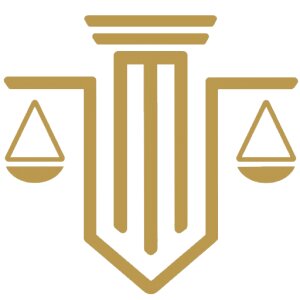
Best Criminal Litigation Lawyers in Saudi Arabia
Share your needs with us, get contacted by law firms.
Free. Takes 2 min.
Or refine your search by selecting a city:
List of the best lawyers in Saudi Arabia

About Criminal Litigation Law in Saudi Arabia
Criminal litigation in Saudi Arabia is primarily guided by Islamic Law (Sharia), which forms the foundation of the country's legal system. The Saudi Arabian legal system is unique, enforcing both religious and civil statutes. Criminal offenses range from minor infractions to severe offenses, with punishments that can include fines, imprisonment, corporal punishment, or even the death penalty, depending on the severity of the crime. The judicial process is overseen by Saudi courts, where a series of procedural rules aimed at delivering justice are followed. Sharia law influences criminal proceedings, and decisions are often at the judges' discretion, with Quranic principles heavily invoked.
Why You May Need a Lawyer
Engaging a lawyer in criminal litigation can be crucial for various reasons. Crucially, a criminal defense lawyer can safeguard your legal rights, ensuring fair treatment within the complexities of the Saudi legal system. If charged with an offense, a lawyer can negotiate plea deals, represent you in court, and provide guidance through the procedural intricacies. Legal representation is also vital for non-nationals, who may encounter challenges understanding the laws and customs. Furthermore, a lawyer's experience in the nuances of Sharia law can be invaluable, addressing defenses that may not be apparent to those unfamiliar with local customs and regulations.
Local Laws Overview
Saudi Arabia's legal system is based on Sharia law, largely derived from the Quran and Hadith. Here are some key aspects relevant to criminal litigation:
- Criminal offenses are categorized into Hudud (fixed punishments), Qisas (retaliation), and Ta'zir (discretionary punishments).
- Religious police, known as the Committee for the Promotion of Virtue and the Prevention of Vice, enforce moral codes and can impose penalties.
- Judges have considerable discretion in interpreting Sharia law and delivering judgments.
- Public trials are typical, and defendants have the right to be heard, with the presumption of innocence until proven guilty.
- Punishments can be severe, making it essential for defendants to have skilled legal counsel to navigate the system effectively.
Frequently Asked Questions
What kind of cases does criminal litigation cover?
Criminal litigation covers offenses ranging from petty theft and fraud to serious crimes such as assault and murder.
Is it mandatory to have a lawyer in criminal court?
While not mandatory, it is highly advised to have a lawyer to ensure your rights and interests are adequately protected.
How do I find a lawyer specializing in criminal law?
You can seek recommendations, contact local bar associations, or consult law firms specializing in criminal litigation.
What are my rights if I am arrested?
Suspects have the right to know the charges against them, an attorney, and remain silent until consultation with a lawyer.
Are trials public in Saudi Arabia?
Generally, trials are public; however, certain cases may be closed depending on the nature of the crime.
Can foreigners face different legal procedures?
While the laws apply similarly, foreigners may face language barriers and may not be familiar with local customs, hence requiring legal assistance.
How long does criminal litigation typically take?
Duration varies widely depending on the complexity of the case and the caseload of the courts involved.
What happens if I cannot afford a lawyer?
Legal assistance programs may provide help, or the court might appoint a defense attorney if financial hardship is proven.
Are there alternative dispute resolution options available?
Yes, some minor offenses may be resolved through mediation or negotiation with the prosecutor.
What is the role of the judge in a criminal trial?
Judges oversee proceedings, interpret laws, and issue verdicts and sentences based on their findings and Quranic principles.
Additional Resources
For further assistance, several resources can be beneficial:
- The Ministry of Justice in Saudi Arabia provides legal information and resources.
- The Human Rights Commission can offer guidance on legal rights and protections.
- Local embassies and consulates can assist foreigners needing legal advice or representation.
Next Steps
If you need legal assistance in criminal litigation, begin by documenting your case thoroughly. Seek reputable legal counsel specializing in criminal law, preferably with experience in Sharia law and the Saudi legal system. You can also reach out to local bar associations for lawyer recommendations. Understanding the potential outcomes, strategies, and rights is critical before proceeding with legal actions.
Lawzana helps you find the best lawyers and law firms in Saudi Arabia through a curated and pre-screened list of qualified legal professionals. Our platform offers rankings and detailed profiles of attorneys and law firms, allowing you to compare based on practice areas, including Criminal Litigation, experience, and client feedback.
Each profile includes a description of the firm's areas of practice, client reviews, team members and partners, year of establishment, spoken languages, office locations, contact information, social media presence, and any published articles or resources. Most firms on our platform speak English and are experienced in both local and international legal matters.
Get a quote from top-rated law firms in Saudi Arabia — quickly, securely, and without unnecessary hassle.
Disclaimer:
The information provided on this page is for general informational purposes only and does not constitute legal advice. While we strive to ensure the accuracy and relevance of the content, legal information may change over time, and interpretations of the law can vary. You should always consult with a qualified legal professional for advice specific to your situation.
We disclaim all liability for actions taken or not taken based on the content of this page. If you believe any information is incorrect or outdated, please contact us, and we will review and update it where appropriate.
Browse criminal litigation law firms by city in Saudi Arabia
Refine your search by selecting a city.















